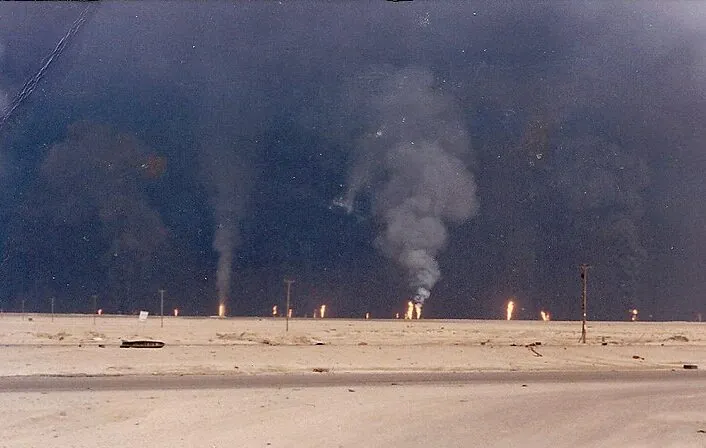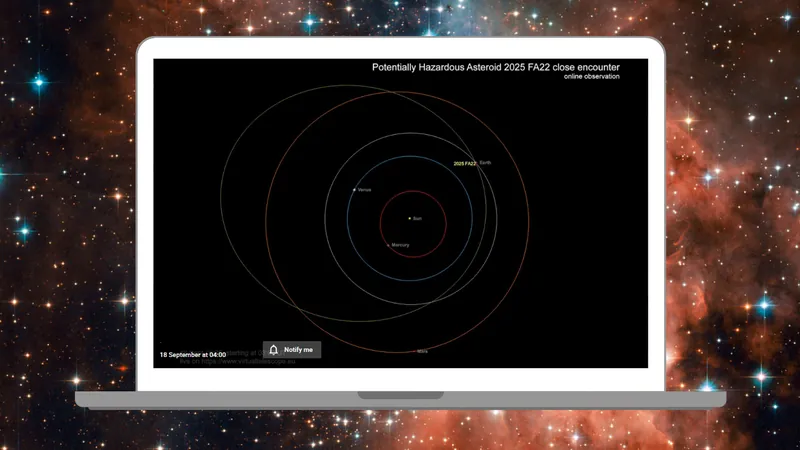
Childhood Cancer Survivors Face Alarming Risks from Air Pollution
2025-09-18
Author: Olivia
Air Pollution: The Hidden Danger for Childhood Cancer Survivors
New research from the University of California, San Francisco reveals that air pollution poses a critical threat to the long-term health of childhood cancer survivors. These individuals, already battling the adverse effects of their disease and treatment, are increasingly vulnerable to the harmful consequences of polluted air.
Survival Comes with a Catch
Though childhood cancer survivors are living longer than ever, their survival is often tainted by chronic health issues. Shocking findings indicate that exposure to pollutants from oil wells, pesticides, and wildfire smoke significantly aggravates these complications, leading to hospitalizations and even reduced survival rates.
Staggering Statistics
In Utah, survivors of childhood cancer living in areas with heightened levels of PM2.5 faced an astonishing 84% increased risk of respiratory-related hospitalizations. Moreover, a follow-up study highlighted a grim link between cumulative PM2.5 exposure and higher mortality rates among survivors of leukemia, lymphoma, and brain tumors, persisting up to a decade post-diagnosis.
The Texas Dilemma
The situation in Texas paints a similarly alarming picture. Survivors dwelling near oil and gas wells displayed notable declines in survival, particularly among those with acute myeloid leukemia and hepatoblastoma.
Regulatory Concerns
Although the U.S. EPA has recently tightened its PM2.5 air quality standard from 12.0 to 9.0 µg/m³, researchers caution that even these revised levels are insufficient for protecting medically vulnerable populations—such as childhood cancer survivors—from adverse outcomes.
Families Need Guidance
This burgeoning concern among families is palpable. Surveys conducted at the Texas Children's Cancer and Hematology Center indicate that caregivers are eager for reliable information on minimizing environmental risks but often find it elusive. Alarmingly, many healthcare professionals feel ill-equipped to discuss air pollution or provide actionable mitigation strategies.
A Call for Action
Dr. Omar Shakeel, a pediatric hematologist and oncologist, notes that an overwhelming 96% of pediatric cancer providers believe that an environmental referral service would be instrumental in helping families navigate these concerns.
Dr. Mark Miller, a senior author of the study, emphasizes the urgent need for education and training on the impact of environmental pollutants on health outcomes. To address this gap, UCSF's Western States Pediatric Environmental Health Specialty Units are collaborating to launch a comprehensive environmental referral service.
Promising Solutions Ahead
This initiative aims to offer families counseling, risk assessments, and practical resources, including affordable air quality monitors and DIY HEPA air purifiers.
A Unified Front
Dr. Miller concludes with a powerful message: "If we truly believe our children deserve the cleanest air, water, and environment, it is imperative that policymakers, medical providers, and communities unite. Increased federal funding for research and resources could substantially diminish children’s exposure to hazardous pollutants, ultimately enhancing health and survival outcomes."









 Brasil (PT)
Brasil (PT)
 Canada (EN)
Canada (EN)
 Chile (ES)
Chile (ES)
 Česko (CS)
Česko (CS)
 대한민국 (KO)
대한민국 (KO)
 España (ES)
España (ES)
 France (FR)
France (FR)
 Hong Kong (EN)
Hong Kong (EN)
 Italia (IT)
Italia (IT)
 日本 (JA)
日本 (JA)
 Magyarország (HU)
Magyarország (HU)
 Norge (NO)
Norge (NO)
 Polska (PL)
Polska (PL)
 Schweiz (DE)
Schweiz (DE)
 Singapore (EN)
Singapore (EN)
 Sverige (SV)
Sverige (SV)
 Suomi (FI)
Suomi (FI)
 Türkiye (TR)
Türkiye (TR)
 الإمارات العربية المتحدة (AR)
الإمارات العربية المتحدة (AR)